Our Sustainability Activities
Environmental Sustainability
The effects of climate change become more visible with each passing day and require action from every segment of society. With our circular “Farm to Table” business model, we increase our renewable energy production, operate under regenerative agriculture and sustainable dairy farming principles, use water and energy efficiently, and work toward achieving zero waste.
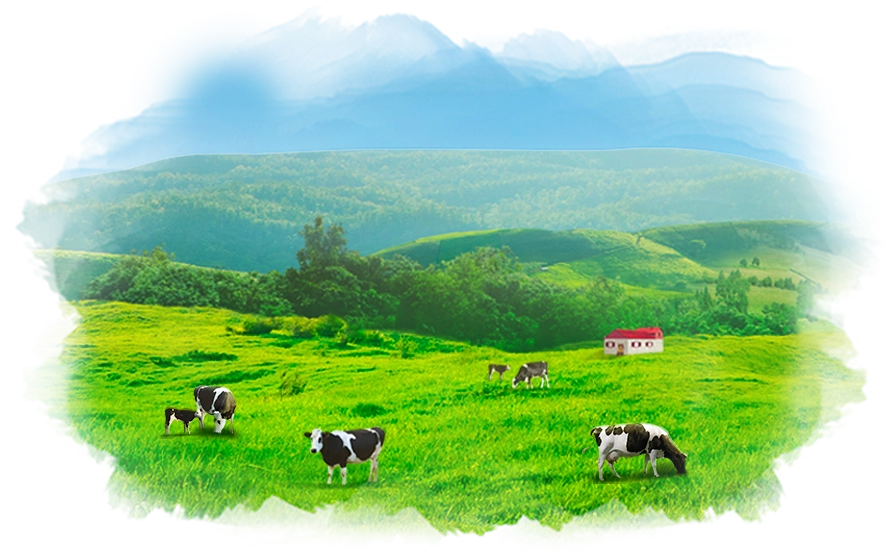
Climate Change and Carbon Management
We are determined to assume a leading role in the fight against climate change, and we take the necessary steps to do so. In this process, we aim to leave a more livable world to future generations by protecting our natural resources, while offering sustainable, quality and healthy products to our customers. To serve this end, since 2012, we have been calculating and monitoring the Scope 1 and Scope 2 greenhouse gas emissions (GHG) resulting from our operations.
We operate in a long value chain and collaborate with many stakeholders. In addition to the Scope 1 and Scope 2 emissions arising from our operations, we aim to calculate the Scope 3 emissions arising from our entire value chain and collaborate with all our stakeholders to reduce them. Accordingly, we commenced work to create the necessary infrastructure to calculate our Scope 3 emissions.
Renewable Energy Generatıon
Our goal is to contribute to the fight against climate change through nature-friendly production for a sustainable future. We are aware of the importance of renewable energy sources in achieving our goal, and we are considering it as a material topic.
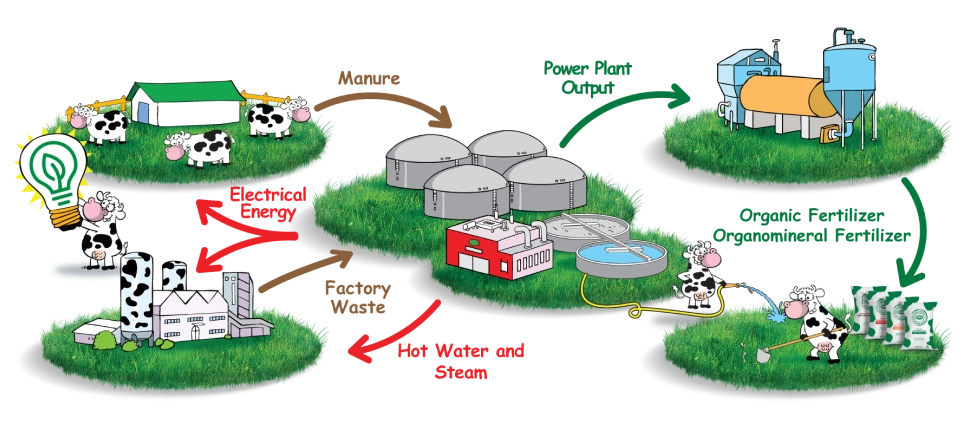
We generate electricity, hot water and steam from organic waste by using cogeneration technology. We also increased our renewable energy production from biogas by a remarkable ninefold since 2013.
Thanks to these operations, we prevent the release of methane gas, which is a major source of GHG emissions resulting from animal and organic waste, while also stopping these nutrient-rich products from reaching and polluting underground and surface waters.
We ensure that GHG emissions prevented in our biogas plants is verified and certified by the Gold Standard®, an internationally recognized certification program.
Diversifying our investments in renewable energy sources, we completed our work for hybrid (Biogas and Solar) renewable energy production in our Bingöl Integrated Facilities in 2021, and finalized our efforts for the licensing of our 1 MWp solar power plant (SPP) in 2022. We expect the renewable energy produced here to cover 10% of the annual electricity consumption of our Bingöl Integrated Facilities.
Energy Consumption and Energy Efficiency
Energy consumption is one of the biggest contributors to climate change. Accordingly, we closely monitor our energy consumption and continuously carry out R&D activities to ensure optimum levels are maintained.
Thanks to our energy efficiency efforts, we achieved 26 million kWh in energy savings from 2015 to 2022. This amount is equivalent to the annual electricity consumption of 9,400 households

Logistics Efficiency
Milk and dairy is a logistics-intesive sector. We carry out a significant portion of our logistics operations with our business partners. Every day, we buy raw milk from dairy farmers and deliver it to our integrated facilities. We transport our products to our regional directorates and distributors, and then deliver them to each sales point. In doing so, we travel more than 70 million kilometers per year.
We aim to reduce the GHG emissions arising from this key ring in our value chain. We consider logistics efficiency to be the most effective tool in achieving this goal. This ensures cost-effectiveness while also minimizing other environmental impacts resulting from fuels.
We work closely with our business partners in this regard. With our special software, we ensure that raw milk and dairy products transported customers at the shortest distance and at the maximum capacity while simultaneously minimizing fuel usage.
Waste
We aim for net-zero waste. While we recover our organic waste for energy purposes, we also ensure that recyclable waste, including that which arises from defective packaging materials and the packaging of returned products, are recycled by licensed companies.
With our efforts aimed at reducing, sorting and recycling waste, we achieved a recycling rate of 98% in 2020, and increased this rate to 99.3% in 2022.
In 2022, we began carrying out informative and awareness-raising activities with the slogan “Take Action for Zero Waste” with the goal of raising zero-waste awareness in our employees. By this, we informed our employees and their families about zero waste, different types of waste, the relevant bins each waste type should be put into, and the benefits of this practice.
97% of the waste we produce is organic, and all of it is converted into energy at our biogas plants. We obtain energy at our biogas plants by processing the non-disposable organic waste from our stakeholders in addition to the organic waste from our own farms and plants, and we contribute to the waste management efforts of our other stakeholders.
Reducing Packaging Materials
All plastic packaging materials we use are recyclable. However the legislation allows the use of recycled packaging materials only in limited areas. We carry out lightweighting efforts in plastic packaging to the fullest extent allowed by technology without compromising on consumers’ expectations for quality and hygiene.
To serve this end, our R&D teams develop, test and implement ideas in collaboration with our suppliers of plastic packaging materials.
In 2022, we successfully reduced the weight of primary packaging for eight of our products. In doing so, we reduced our plastic use by 153.5 tons. This also enabled us to prevent 288 tons of CO2 emissions.
Water Management
Water serves as a fundamental input in our operations. We use water for many purposes, including agricultural irrigation in the lands we cultivate to grow fodder crops, washing facilities, meeting the water needs of the animals in our farms, and cleaning these farms.
Most of our facilities are located in water-stressed areas. We shoulder a significant responsibility for the sustainability of water resources. Accordingly, we are working to use water effectively and efficiently by incorporating sustainable practices into the design of all our processes.
For sustainable water management, our teams conceive projects on protecting water resources, reducing our water consumption and ensuring water efficiency, and they constantly review our operations.
Sustainable and Regenerative Agriculture
The health, structure and quality of the soil, which gives our livestock the fodder crops they need, is the key to ensuring food safety and security, helping producers build resilience and making them stronger, and increasing productivity in agricultural production. It is therefore the key to sustainable and regenerative agriculture.
As the leading company of the sector, we believe that sustainable and regenerative agriculture is the key to food security and the agricultural production of the future. To serve this end, we ensure that the soil used for fodder crops is healthy. We also utilize regenerative agricultural practices to conserve and improve the soil structure.
To achieve the goals defined in the European Green Deal -From Farm to Fork and Biodiversity Strategies in our raw milk and fodder crop production, we refer to the agricultural practices* recommended as part of the environment, climate and animal welfare actions, and we inform and encourage our raw milk suppliers and contracted fodder crop producers to adopt the same practices.
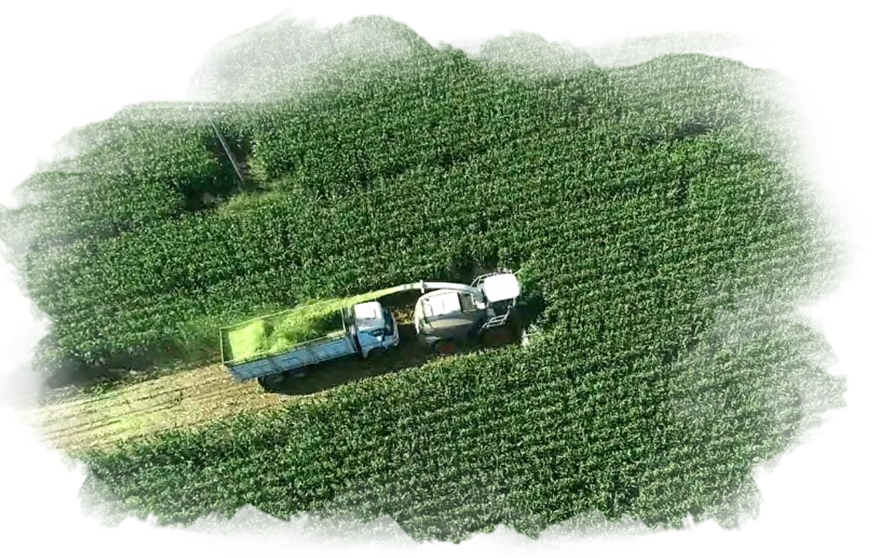
REGENERATIVE AGRICULTURE PRACTICES
Contribute to soil formation, fertility and health.
Improve the infiltration and retention of water in the soil.
Increase biodiversity and improve ecosystem health and resilience.
Ensure soil carbon sequestration and reverse the negative effects of climate change.
Sütaş Organomineral Fertilizer Workshop Report
We believe that the collaboration of universities, the public and private sectors, and civil society will make major contributions to the solution of many global problems.
To serve this end, we organized a workshop on the use of organomineral fertilizers in agricultural areas and potential application areas in 2017 in cooperation with the Turkish Foundation for Combating Soil Erosion (TEMA). The workshop was attended by soil science and plant nutrition experts from 10 universities, the relevant General Directorates of the Ministry of Agriculture and Forestry, five research institutes affiliated with the Ministry and TEMA. We published the academic studies presented at the workshop in a book and shared them with the public.
We are conducting trial studies on organic and organomineral fertilizers in collaboration with Bursa Uludağ University, the Bursa Provincial Directorate of Agriculture and Forestry, and the Bursa Provincial Directorate of Environment and Urbanization.
In the trials carried out so far, we have recorded increases of up to 15 percent in production and up to 40 percent in the soil organic matter compared to the equivalent fertilizers.
Sütaş Organomineral Fertilizer Workshop Report
CLICK TO VIEW THE REPORT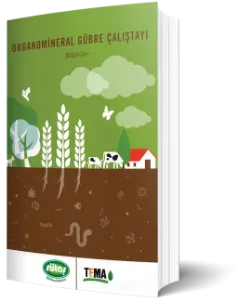
Sustainable Dairy Farming
We consider sustainable dairy farming to be essential for ensuring access to plentiful, healthy and quality food for future generations, and supporting the sustainable management of soil, water and natural resources. With this understanding, we cover all bases from the production of livestock feed to the efficient use, protection and further development of natural resources such as soil and water; ensuring high animal welfare standards; reducing greenhouse gas emissions and waste arising from dairy farming; and improving the conditions for producers by increasing yield and profitability in production.

We prioritize the health and wellbeing of our animals. Our cows are raised on farms meticulously designed by our veterinarians and engineers in accordance with internationally recognized animal welfare standards. These farms are equipped with digital technologies and advanced automation systems, enabling us to monitor our cows 24/7 and assure their health and wellbeing. We manage the basic needs of our farm animals in line with international animal welfare principles and the “Five Freedoms” recognized internationally and adopted by the World Organisation for Animal Health (OIE).
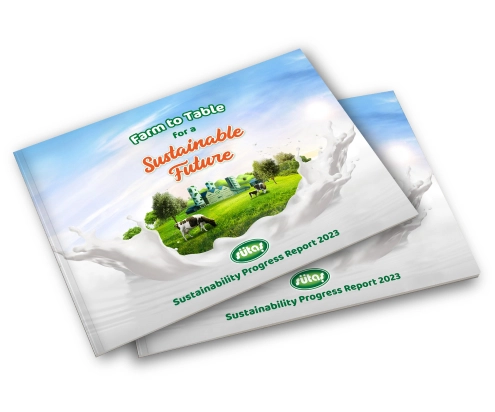
Click to view our 2023 Sustainability Report.
REVIEW REPORT

